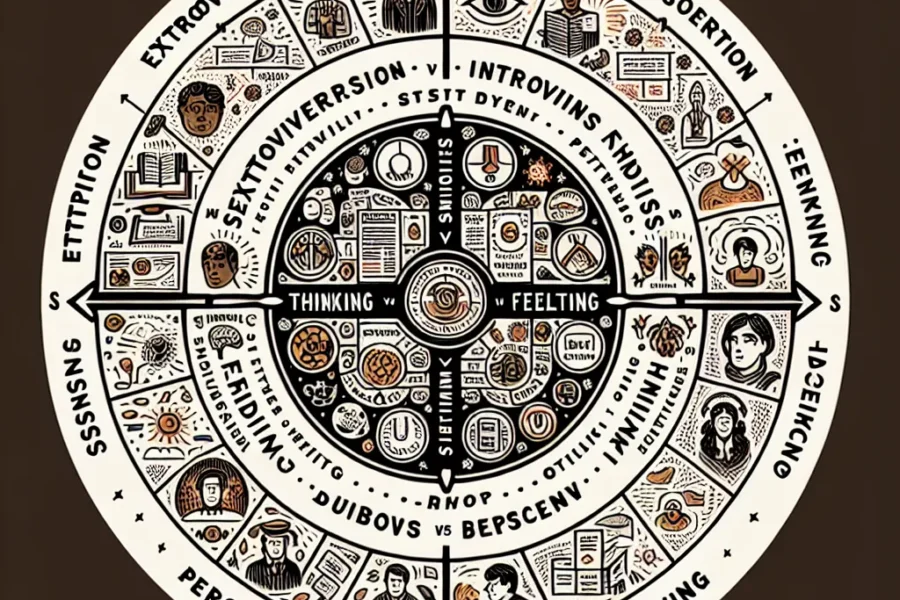Freud’s Case Studies and Their Impact on Psychoanalysis
Sigmund Freud, the father of psychoanalysis, made significant contributions to the field of psychology through his comprehensive case studies. His work with patients suffering from various neuroses provided profound insights into the workings of the human mind, shaping the practice and principles of psychotherapy. Freud’s case studies are not only legendary in psychology but are also critically acclaimed for their role in the development of psychoanalytic theory. This exploration reveals the enduring legacy of Freud’s pioneering cases and the profound impact they have had on psychoanalysis and mental health treatment.
Freud’s methodology centered around detailed case studies, which were narratives of his patients’ treatment. Through these cases, Freud developed his key theories about the unconscious, the development of sexuality, and the nature of neurosis. The analysis of these cases allowed Freud to construct the foundational concepts of psychoanalysis, like repression, transference, and the Oedipus complex. These innovative ideas have influenced myriad therapeutic approaches and spurred ongoing debates in psychological research and practice.
One of the most famous of Freud’s case studies is that of “Dora,” a pseudonym for Ida Bauer, a young woman suffering from hysteria. Dora’s case is a classic example of Freud’s technique of psychoanalysis, as he delved into her repressed emotions and interpreted her dreams to uncover underlying psychological conflicts. Freud’s exploration of Dora’s symptoms, notably her aphonia (loss of voice) and cough, led to his identification of the defense mechanism of displacement and the concept of counter-transference. The case study not only established these crucial psychoanalytic principles but also highlighted Freud’s belief in the psychological significance of dreams.
Another important case was that of “The Rat Man,” whose real name was Ernst Lanzer. The Rat Man struggled with obsessive-compulsive disorder, and Freud’s analysis extensively documented the patient’s fear of rats and the underlying connections to his guilt, aggression, and unconscious desires. This case study was instrumental in elucidating the association between obsessional thoughts and psychosexual development. Freud’s interpretations of The Rat Man’s dreams and fantasies illuminated the inner conflicts and coping mechanisms that characterize obsessive-compulsive behavior.
The “Wolf Man” case, referring to Sergei Pankejeff, provided a fascinating look into childhood neurosis and its manifestation in adult psychopathology. Freud’s examination of the Wolf Man’s dreams, particularly the famous “Wolf Dream,” uncovered deep-seated anxieties and repressed memories related to his sexual development and paternal authority. This case study provided substantial evidence for Freud’s theories about infantile sexuality and the impact of early life experiences on the psyche.
Similarly, Freud’s case of “Little Hans,” a five-year-old boy with a phobia of horses, demonstrated the development of a phobia through the lens of psychoanalytic theory. Freud’s interactions with Hans and his father revealed the fear as a symbolic manifestation of the Oedipus complex, a concept central to Freudian theory. This case study significantly advanced the understanding of how childhood fears and fantasies influence psychosexual development.
Freud’s analysis of “Anna O.,” one of the earliest psychoanalytic case studies conducted by Freud’s colleague Josef Breuer, also shaped key psychoanalytic concepts. Though not directly analyzed by Freud, the case of Anna O. (Bertha Pappenheim) was critical in the development of the “talking cure,” the foundation of psychoanalytic therapy. Anna’s symptoms, including paralysis and disturbances of vision and speech, were alleviated through the process of recounting her traumatic experiences—a technique that underscored the therapeutic potential of cathartic conversation in psychoanalysis.
The impact of Freud’s case studies on psychoanalysis cannot be overstated. These narratives provided the empirical basis for his theoretical constructs, fostering a deeper comprehension of psychological disorders. Freud’s emphasis on the unconscious, the role of sexuality in mental health, and the significance of early childhood experiences remain pivotal in contemporary psychotherapy.
Freud’s influence extends beyond psychology into literature, film, and cultural studies, where his case studies continue to fascinate scholars and laypersons alike. The rich detail and dramatic narratives contained within these clinical histories provide not only a window into the human condition but also a source of inspiration for artistic and intellectual endeavors.
Critics of Freud’s case studies point to their subjective nature and lack of scientific rigor by modern standards. The reliability and generalizability of his findings have been called into question, as Freud often based his theories on a small number of cases, sometimes with interpretive leaps that were difficult to empirically validate. Nevertheless, Freud’s willingness to delve deeply into the lives and minds of his patients pioneered a new way of understanding and treating mental disturbances.
The ongoing relevance of Freud’s case studies is reflected in the efforts to revisit and re-analyze his findings with contemporary clinical knowledge. Modern psychoanalysts and psychologists still draw on the rich material Freud provided, while also incorporating advances in neuroscience, cognitive science, and therapeutic technique to provide a more nuanced and scientifically grounded approach to his original insights.
In summary, Freud’s case studies contributed immensely to the field of psychoanalysis and continue to be a subject of intrigue and scholarly examination. They laid the groundwork for subsequent developments in the understanding of mental health and the practice of psychotherapy. Despite the contentious aspects of Freud’s work, the case studies remain a crucial part of the historical fabric of psychological science and their impact resonates in one form or another in modern clinical practice.
In the realm of SEO, content that includes phrases like ‘Freud’s case studies’, ‘impact on psychoanalysis’, and ‘development of psychoanalytic theory’, could potentially perform well in search engine rankings for users seeking information on this aspect of psychology. Moreover, including relevant keywords throughout the text, such as ‘psychoanalytic case studies’, ‘Sigmund Freud’s influential cases’, ‘unconscious mind’, ‘repression’, ‘transference’, ‘Oedipus complex’, ‘psychosexual development’, ‘hysteria’, ‘obsessive-compulsive disorder’, and ‘phobia’, could further enhance the article’s visibility online. With a growing interest in mental health, articles exploring foundational psychological principles and historical cases generally attract a sizable readership eager to understand the roots of contemporary psychotherapeutic practices.



Leave a Comment